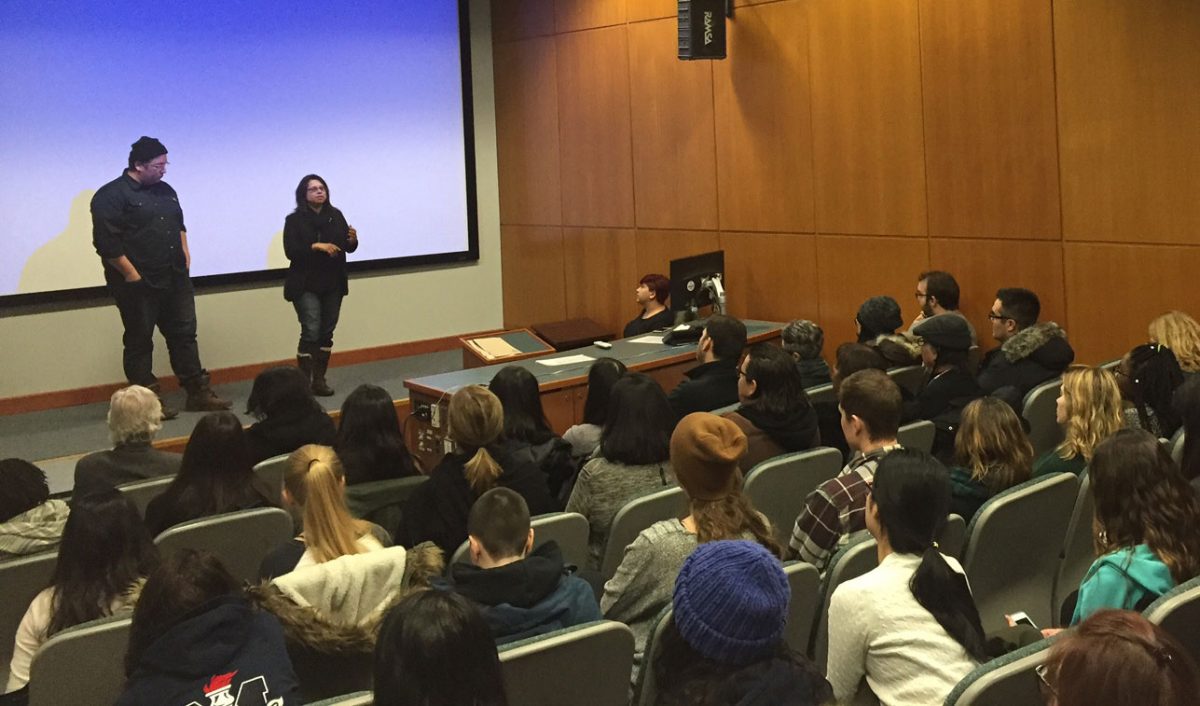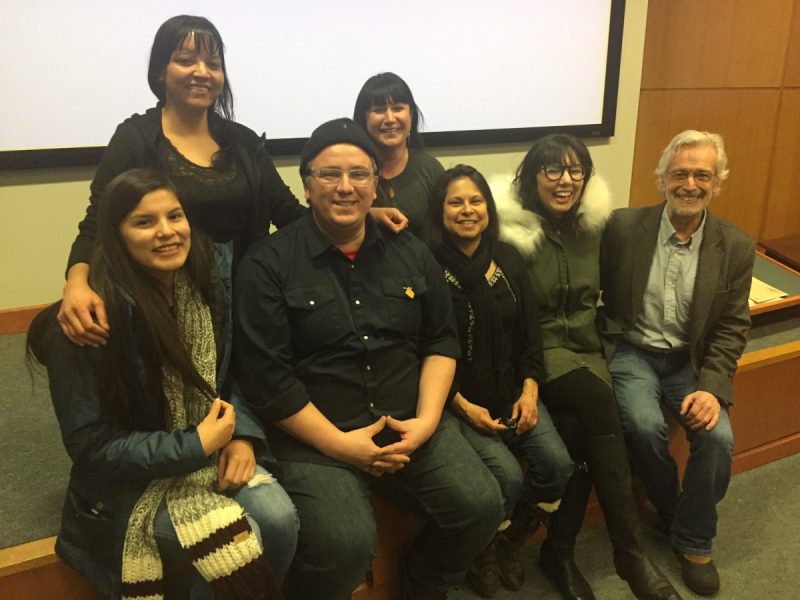
“Colonization Road” and 2017
There are lots of ways to explore the past, and one of them is through film. Michelle St John’s new 49-minute historical documentary, Colonization Road is a powerful and prescient reckoning with Canadian history. It is often very funny, and often very painful.
Colonization Road screened twice on 6 January 2017, once at the University of Manitoba’s Fort Garry Campus and once at Cinamateque in downtown Winnipeg. Each screening was accompanied by a livery discussion between the audience, St. John and the film’s host, Ryan McMahon.
The screenings were part of the Decolonizing Lens film series, a free monthly series featuring the work of Indigenous filmmakers. Organized by The National Centre for Truth and Reconciliation (NCTR)’s research coordinator Kaila Johnston and women’s and gender studies associate professor Jocelyn Thorpe, the Decolonizing Lens is sponsored by the National Centre for Truth and Reconciliation and the Margaret Laurence Endowment Fund.
This series launched about a year ago, and has garnered consistently robust audiences. The Fort Garry campus screening of Colonization Road was standing-room only, and about fifty people were turned away from Cinamateque. They will be able to see Colonization Road when it airs on CBC TV’s Firsthand series on 26 January 2017, though television and online viewers’ will have to settle for a streamlined version with less salty language from McMahon, an Annishinaabe comedian, podcaster, and clever guy.

After the on-campus screening of Colonization Road (L-R: Rayanna Seymour, Angelina McLeod, Ryan McMahon, Aimee Craft, Michelle St. John, Danielle Morrison, Cuyler Cotton)
Colonization Road explores the difficult history of colonialism through the lens of roads. Its particular focus is on the revealingly named colonization roads that were cut through Ontario from the 1870s onwards. There were colonization roads elsewhere too, including one that connected Gimli to what would become Winnipeg. In St John’s documentary, colonization roads become both a specific history and geography and a workable lens into a complex history of colonialism that has worked to dispossess and marginalize Indigenous peoples and centre and empower settler ones.
There are so many colonization roads in Canada, and many ways to think about decolonizing them. The film shows us McMahon’s memories of growing up nearby Fort Frances’ version of Colonization Road. It offers interviews with a stellar list of scholars, writers, and activists, including the University of Manitoba native studies professor Niigaan Sinclair and University of Manitoba alumna Leanne Betasamosake Simpson. St. John takes viewers to Shoal Lake 40, the Annishinaabe community that was cut off from the mainland to create Winnipeg’s water supply in the 1910s. Shoal Lake 40 is still struggling to fund a gravel road that would reconnect their community, and allow them access to some of the basic infrastructure – including clean water – their isolation secured for the settler city two hours’ drive away.
These are some of the histories that all of us, Indigenous and settler, racialized or white, newcomer or old-stock, need to keep in mind during the next year. It is easy for settler Canadians to tell ourselves histories of Canada as a liberal, progressive project, where the dispossession and continued colonization of Indigenous peoples’ figure only as an unfortunate “dark chapter” that can be rushed over without changing the overall narrative.
There are other histories to tell, and it is perhaps especially critical that we tell them, listen to them and watch them this year. 2017 is a good time to read books like Aimee Craft’s Breathing Life into the Stone Fort Treaty: An Anishinabe Understanding of Treaty One (Purich, 2014), to buy magazine’s like Winnipeg’s Red Rising, or to listen to podcasts like Rick Harp’s Media Indigena. It is also the year to watch film’s like St John’s remarkable Colonization Road, and consider how we might better recognize how the history of Canada and the history of colonization are one and the same.






